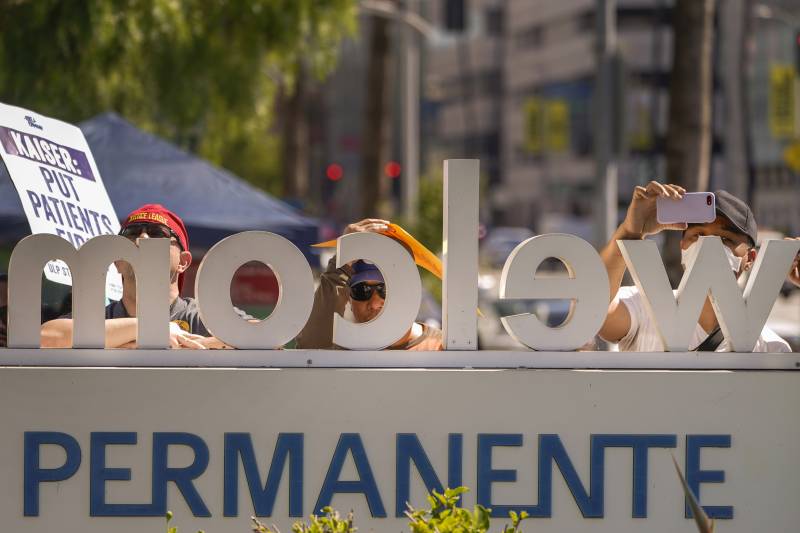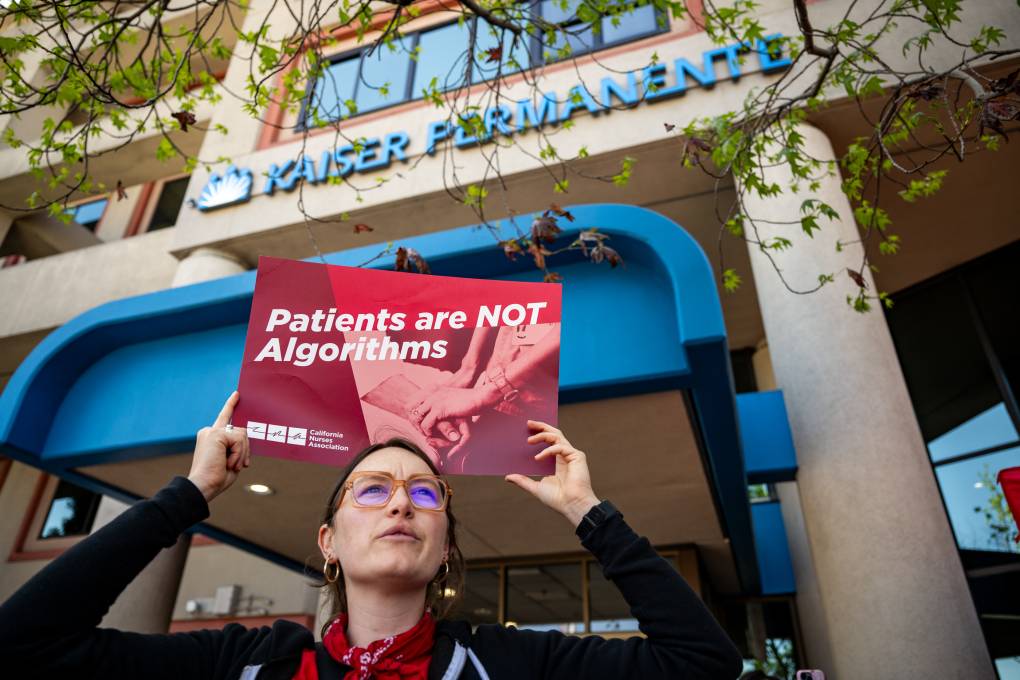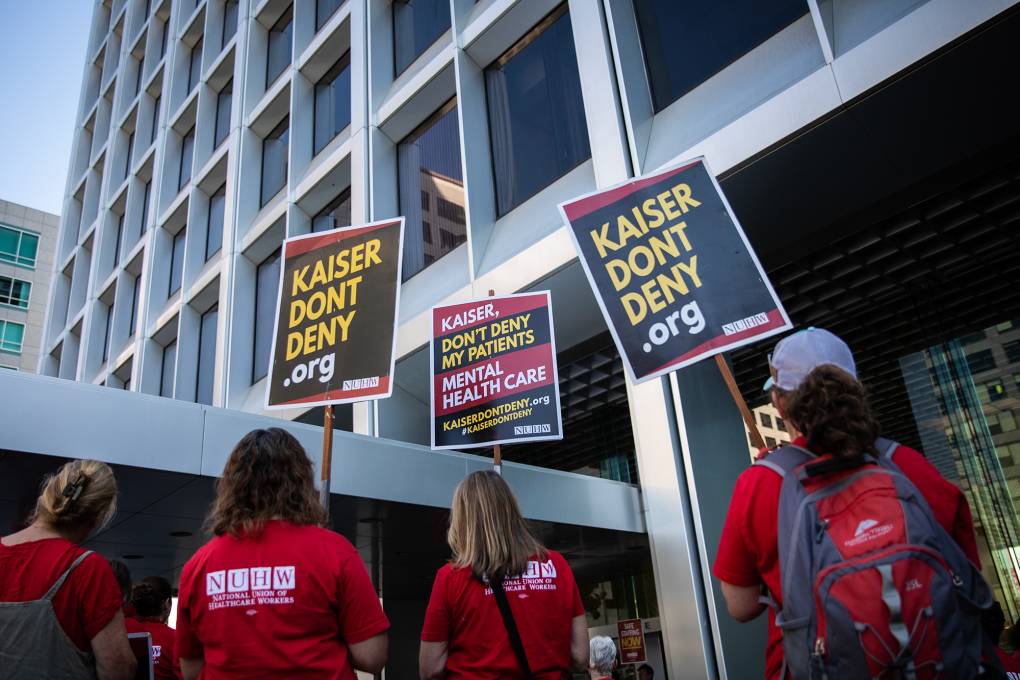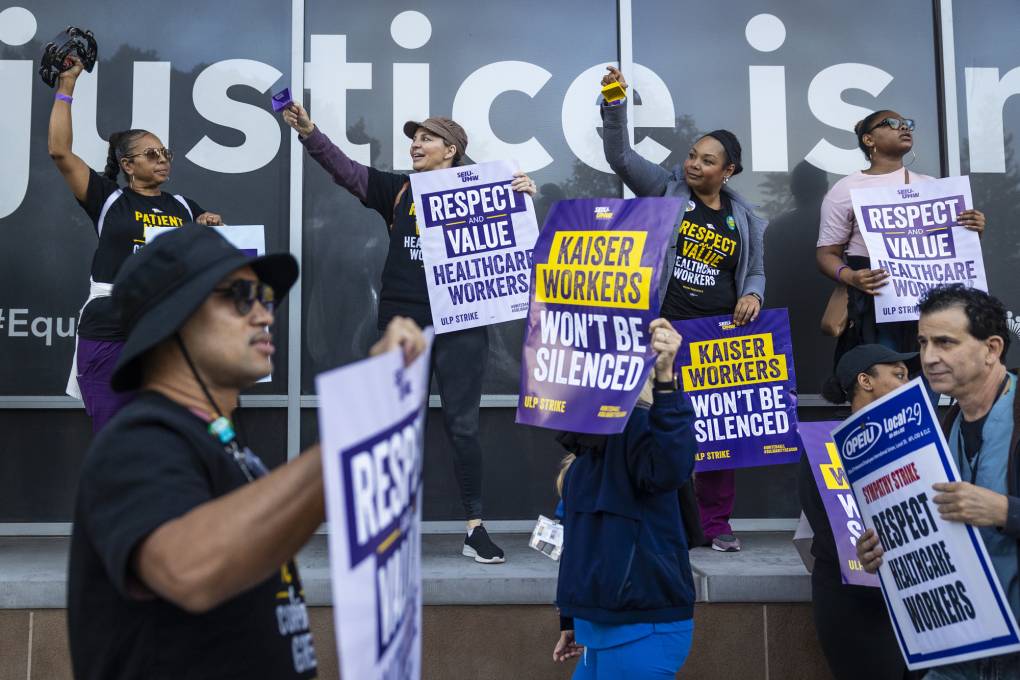“This deal is life-changing for frontline health care workers like me, and life-saving for our patients,” said Yvonne Esquivel, a pediatric medical assistant at Kaiser Permanente in Gilroy.
Their goal was to bring the problems to the public’s consciousness for support, according to the Coalition of Kaiser Permanente Unions.
“The new [four-year] agreement will offer Coalition-represented employees competitive wages, excellent benefits, generous retirement income plans, and valuable job training opportunities that support their economic well-being, advance our shared mission, and keep Kaiser Permanente a best place to work and receive care,” read a joint-statement from Kaiser Permanente and the Coalition of Kaiser Permanente Unions, on Friday.
The strikers include licensed vocational nurses, home health aides and ultrasound sonographers, as well as technicians in the radiology, X-ray, surgical, pharmacy and emergency departments.
“No health care worker wants to go on strike,” Caroline Lucas, the coalition’s executive director, said Thursday. “I hope that the last few days have helped escalate this issue.”
The company warned the work stoppage could cause delays in people getting appointments and scheduling non-urgent procedures.
Unions representing Kaiser workers in August asked for a $25 hourly minimum wage, as well as increases of 7% each year in the first two years and 6.25% each year in the two years afterward.
Kaiser, which turned a $2.1 billion profit for the quarter, said in a statement last week that it proposed minimum hourly wages between $21 and $23 depending on the location. The company said it also completed hiring 10,000 more people, adding to the 51,000 workers the hospital system has brought on board since 2022.
The deal comes a day after Kaiser agreed to pay a $50 million fine as part of a larger settlement with the state of California, which found major deficiencies in its delivery of behavioral health care services. The settlement requires the health care giant to provide its patients with more timely access to behavioral health care, among other improvements, and to invest an additional $150 million in those programs over the next five years.



